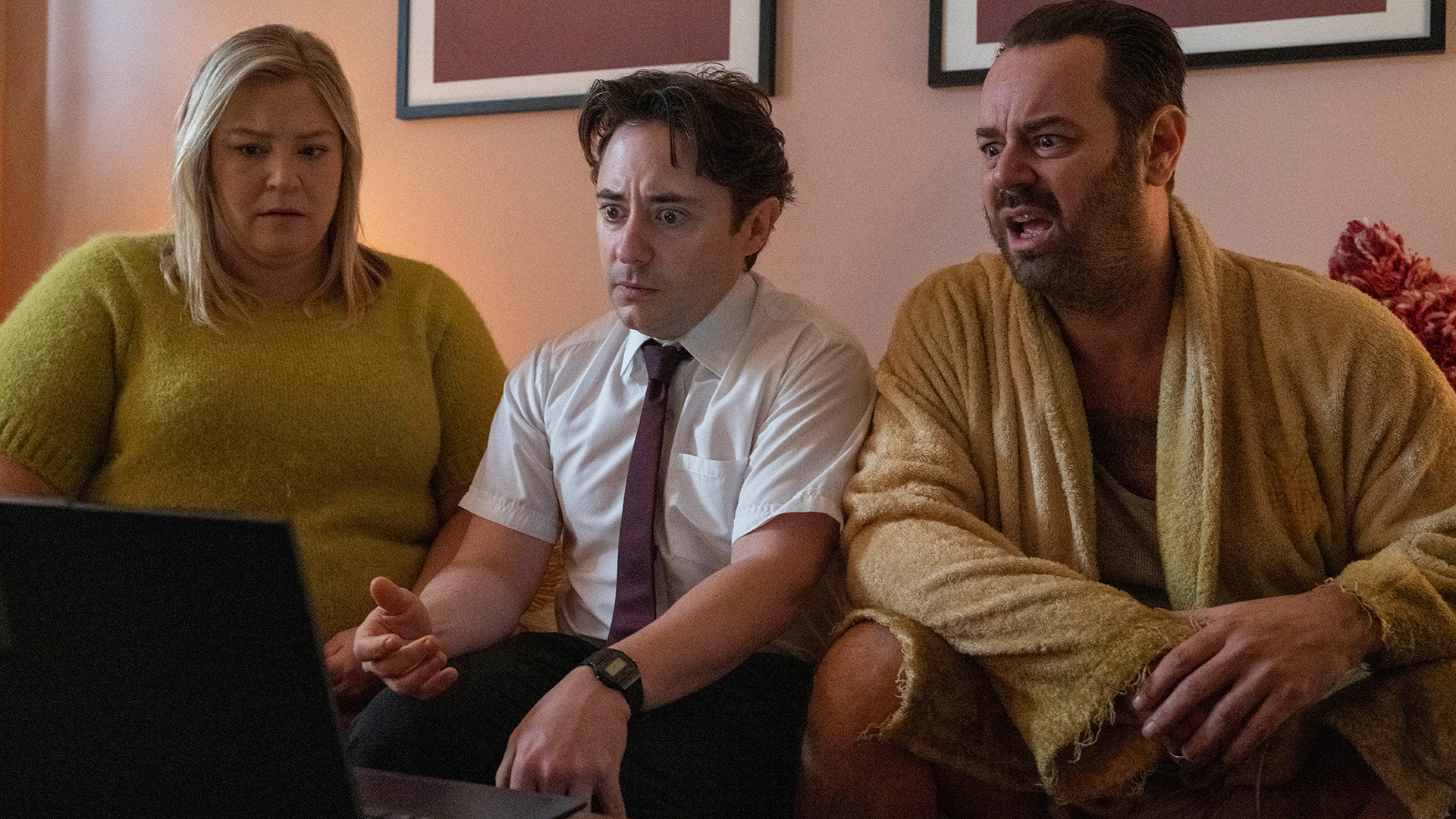Murnaghan Interview with Chuka Umunna, Labour Shadow Business Secretary, 14.06.15
ANY QUOTES USED MUST BE ATTRIBUTED TO MURNAGHAN, SKY NEWS
DERMOT MURNAGHAN: He was the rising star of the Labour party, tipped as its next leader perhaps but no sooner had Chuka Umunna thrown his hat into the leadership ring than he pulled it out again. Well since then he has given his backing to the Blairite Liz Kendall, so as the dust settles from their worst election result for almost three decades, is Labour any closer to deciding where it goes from here? I’m glad to say the Shadow Business Secretary joins me now, a very good morning to you. Well tell me then, seeing as you are not standing and we might explore the reasons why a little bit later on in this interview, why does Liz Kendall embody the qualities that you felt you would have bought to the leadership election?
CHUKA UMUNNA: Because I think we’ve got three challenges as a party. One is how do we make our Labour values of having a free and fairer society real in the context of globalisation, how do we pay our way in the world as a country? Secondly, how do we do that and create the kind of society we want to see when technology is reaping havoc across our lives? Now sometimes that creates fantastic opportunities for people but in many of our communities it has destroyed jobs that people have done for generations. And how also do we continue to provide public services when there is less money around and my view is that Liz has started answering those questions and asking them too and frankly, unless we deal with those issues, we’re not going to be able to win again. Part of our problem I think over the last five years is in some senses we’ve [refracted] to some of the solutions for a different world in a bygone era, we’ve tended to suggest you can build a fairer, more equal society simply by more regulation of business and more taxation of individuals or businesses but actually when you look at the big forces that are knocking us around at the moment, that is inadequate to dealing with the real challenge which is how you create better opportunities, living standards, help people get on when the world is totally and completely different.
DM: Let’s talk about some of the big forces knocking Labour around and knocked Labour around five years ago as well because this is very pertinent isn’t it to the current leadership election campaign. You write in the papers today saying you’ve got to own your past to own your own future. Now owning the past involves that analysis of 2007, 8 and 9 that the charge being that Labour spent too much and was unprepared for what hit us. How do you own that, how do you address that and why didn’t you address it properly before?
CHUKA UMUNNA: Well I think, to answer your last question, the reason we didn’t answer it properly before is that we were worried if we ended up talking about our past we’d never be able to move on to the future but the fact is, unless you deal with your record, nail the myths but also concede where you went wrong, the people won’t give you permission to go to the future and frankly they won’t trust you to run the public finances again. There are a number of things that we shouldn’t have done in office, we should not have been running an albeit historically unremarkable and small deficit going into the crash, on average we had a deficit of 1.3% between ’97 and 2007, that compared quite well actually to the Tories average 3.2% in the 18 years before that but …
DM: George Osborne in opposition backed your spending plans didn’t he?
CHUKA UMUNNA: Well I was going to come on to that because if you can’t run a surplus after 15 years of growth, which was the situation we were in 2007, when can you? But that wasn’t what caused the deficit to balloon, what caused the deficit to balloon was the global financial crash which started off with irresponsible behaviour in the banking sector and you are absolutely right Dermot, of course if it was profligacy on our part that caused the crash then George Osborne would not have signed up to our spending plans in 2007 but the reason – and this was the reason, if there was a major mistake that we made this was it, of course we had an economy at that point which was too reliant on tax revenues from a frothy housing market, from the banking sector and from taxes on City bonuses. What we failed to do was to rebalance and restructure our economy. The Major administration had failed to do that beforehand too but we had an economy which was too concentrated in too few sectors, in too few regions of the country and was based around quite a lot of cheap credit. Now we should have addressed that when we were in office and because we didn’t address it, of course when the crash came that left the UK economy horribly exposed. Now that’s where we went wrong and the challenge frankly, not just for us but for the current Conservative government, is to show that it has learnt from those mistakes and from our point of view we’ve got to be very clear there is a very strong progressive argument for balancing the books, it is absolutely unacceptable for us to be spending more paying debt interest to City speculators and investors and we do invest on skills, on housing, on transport. We’ve got to remove any weaknesses in our fiscal position by the 2020 general election, we can’t leave it to the last minute as frankly I think we did a bit in the last general election campaign but we’ve also got to be the ones who are mastering dealing with weaknesses in our economy and if you look at what’s happened under the Conservatives, not just during the last five years but also now, what’s wrong with our economy at the moment? It is too based on house pricing, speculation, cheap money, it isn’t balanced enough. We have a trade deficit, if you look at the current account deficit it is at its highest level ever in 2014, 70% of our growth is coming from private consumption. That isn’t the kind of better balanced growth that we need to see and that’s what we aim to be the masters of and industrial strategy is at the core of this and it must absolutely be at the core of any narrative that the Labour party …
DM: But the thought that occurs, Mr Umunna, is that there must be Chuka Umunna supporters out there and indeed more broadly within the Labour party, saying listen to this guy, he’s got this analysis of what happened in the past, this blueprint for the future, why isn’t he standing? Was it just the issue of the intrusion, the privacy issue, that made you withdraw?
CHUKA UMUNNA: Look, when you stand for the leadership of a party of course you expect a certain level of attention, I wasn’t naïve about that. I think the thing that triggered me coming out was the impact that it was having on my loved ones during the seven days that I was in the contest and none of the other candidates, I spoke to the other candidates during that time, were being subjected, their families weren’t being subjected to quite the same thing and I just felt that for me at this moment in my life this isn’t the right thing.
DM: Do you think you kind of brought it on yourself appearing with your girlfriend before the Andrew Marr Show with the photographers all there?
CHUKA UMUNNA: Not really, not really because we had actually appeared in public before but be that as it may, look, I pulled out of the contest, I’m not in it anymore but I am as hungry as ever and determined to do all that I can to make sure that the Labour party gets back into office again. Look, when I was growing up I never particularly expected to be a Member of Parliament, there weren’t many people who looked like me in the House of the Commons at that time and one of the things I do know is that if you become a Minister in a Labour government you can actually affect some positive change for your community and the country beyond but unless we get into power we are not going to be able to do that …
DM: So that’s what you hope to do, serving …
CHUKA UMUNNA: The economy, Dermot, is absolutely crucial here because we had actually quite a few policies that people liked in and of their own individually were quite popular. It is all very well having popular policies but if people don’t trust your competence to deliver them then they’re for nothing and I think people know that the Labour party has a heart and is deeply compassionate but they have always over time been a little bit concerned about whether we bring a hard headed judgement to competently deliver policy too and that’s what we have got to give people confidence that we have again.
DM: And one of the big issues that your leader is going to have to deal with, whoever that is, and of course your party as a whole, is the EU referendum. Now you’ve seen what’s gone on within the Conservative party about whether or not Ministers would have a free vote, what’s your view on what Shadow Ministers should do whenever the deal is done, whatever that may be?
CHUKA UMUNNA: Well the advantage that the Labour party has is that unlike the Conservative party which you referred to no one knows what the position is going to be in relation to collective responsibility, at least in the Labour party we now accept that there will be this referendum but we also accept that whatever the outcome of the renegotiation, everybody on the front bench will be arguing for the Labour party, sorry, for the United Kingdom to remain a member of the EU. I think where there has been a discussion – I’m not going to be disingenuous with you and say that there hasn’t been a discussion and a variety of views about this - is the extent to which we put ourselves at the forefront of making the argument to stay in, in the country nationally. Now this is in part because people want to make sure that we learn the lessons from the last time we were involved in a referendum campaign which was in Scotland but my view is that we’ve got to make sure we learn the right lessons from that and not the wrong lessons. The right lesson is that we need to make a case which isn’t just about arguing for the status quo but is for a changed, more progressive reformed European Union. It helps that we will be the Yes campaign and we’ve also got to make a positive argument not just based on the risks of leaving but also on the benefits of staying and what can happen in the future in a changed European Union but what would be wrong is for us to conclude that just because we got involved with Better Together, which involved other groups and other political parties, that that brought our defeat because look, we got hammered in 2011 and in 2007, long before that referendum came and we’ve got to be clear with David Cameron and others, look, we’re not going to be accepting a reformed European Union or a renegotiated settlement which involves a race to the bottom on people’s terms, conditions and wages but we’ve got to make an emotional argument for staying in. Actually this week there will be a new group of PLP Parliamentary Labour Party members forming, backing Labour Yes, which I think is very exciting but that will be the first stage of a wider argument. I think we do have to have a separate Labour Yes vehicle but I also believe we need to be working with a variety of other groups in civic society, not just business, to not look like some cosy cartel of big business and established parties making this argument, a broad range of groups need to be making an emotional argument for Britain’s members of the European Union, which isn’t just economic by the way, it’s about promoting peace too, stability in our world.
DM: Well no doubt we will have you back to discuss more about that, but for the time being Shadow Business Secretary, thank you very much indeed, we are out of time. Chuka Umunna there.
CHUKA UMUNNA: Thank you very much.




